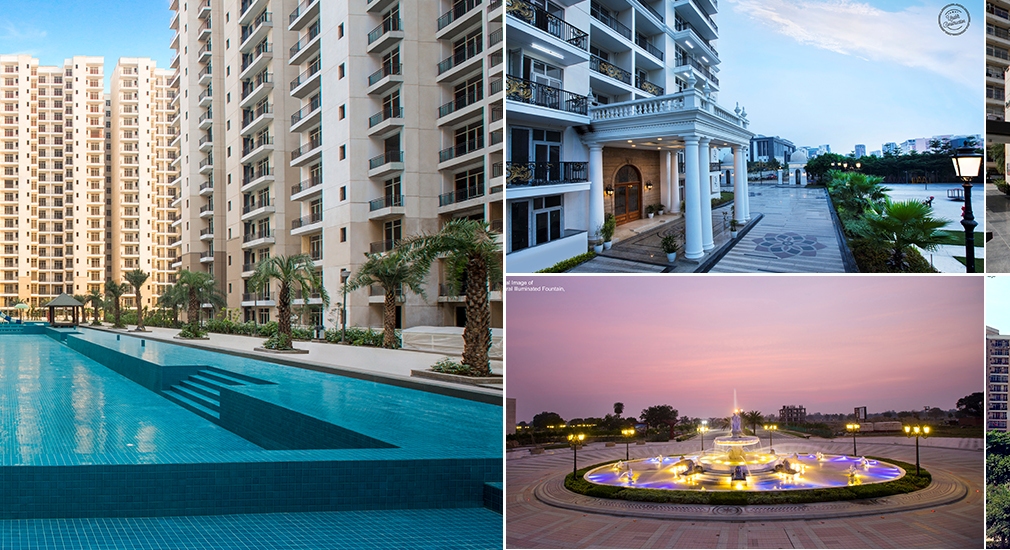For many Non-Resident Indians (NRIs), investing in property back home is more than a financial decision—it’s a tribute to heritage, a way to stay connected, and a long-term legacy for future generations. The current Indian realty landscape, bolstered by a recovering economy, improved infrastructure, and supportive regulations, makes Investment in Real Estate in India an increasingly attractive proposition for NRIs. Omaxe offers a specialized “NRI Corner” that caters to the unique needs of overseas investors with resources, curated listings, and support to streamline the process.
Indian Real Estate: A Goldmine for NRIs
Several macroeconomic factors make India a compelling investment destination:
- Growing Economy and Consumption: Rising incomes and urbanization are fueling demand for residential and commercial spaces.
- Tier-2 and Tier-3 Momentum: Beyond metros, cities like Lucknow, Indore, and Vadodara are witnessing rapid infrastructure upgrades and offer more affordable entry points with high appreciation potential.
- High Returns & Rental Yields: Accelerating capital value growth combined with rising urban rental demand creates strong ROI prospects.
- Favorable Currency: The rupee often grants NRIs an effective buying advantage, especially when remitting funds from stronger currencies.
- Tax Incentives & DTAA: NRIs enjoy tax deductions on home loan interest and benefit from double taxation avoidance treaties, reducing their overall tax liability.
Why the “NRI Corner” Matters
A dedicated resource like Omaxe’s “NRI Corner” simplifies every stage of property acquisition—from selecting vetted listings to understanding legal nuances—from the comfort of abroad. It reflects the growing recognition that NRI needs go beyond just showcasing projects—they need guidance, transparency, and trust.
Shaping Realty Standards Through NRI Demand
NRIs aren’t just investors—they’re trendsetters. Their preferences are helping reshape the Indian real estate market:
- New Benchmark for Amenities: Demand for smart home features, wellness zones, and sustainably built homes is rising, encouraging developers to elevate quality standards.
- Go-to Global Design Language: When NRIs expect international living standards and lifestyle experiences, developers respond with innovative, contemporary formats.
Advantages for NRIs Investing in India
| Advantage | Details |
| Emotional Anchor | Property provides a tangible link to homeland—one that can be passed down. |
| Smooth Processes | Many developers and financing institutions support digital documentation, virtual tours, and remote transactions. |
| Support Infrastructure | Services like NRI-specific care desks and advisory services make processes like financing or legal paperwork hassle-free. |
| Strategic Locations | With future-ready infrastructure across cities, NRIs can capitalize on growth corridors before they mature fully. |
| Diversified Portfolio | Real estate gives NRIs exposure to tangible, inflation-hedged assets—balancing out liquid investments overseas. |
Navigating Investments Smartly: Tips for NRIs
- Understand RBI & FEMA Guidelines
NRIs can buy residential or commercial property freely; agricultural and farm properties come with restrictions. Funds must typically come through NRE/NRO accounts. - Funding Options
Many Indian banks offer home loans to NRIs—often secured against NRE/FCNR deposits with reasonable tenures. - Leverage PoA
If you’re unable to visit, a trusted representative with Power of Attorney can complete documentation on your behalf. - Due Diligence is Key
Choose developers with transparent legal status and RERA registration. Review the building’s title and licensure before training funds. - Location, Always
Proximity to airports, schools, healthcare, and transit plus growth corridors can significantly impact appreciation and rental potential.
Final Thoughts
For NRIs seeking meaningful and rewarding roots in India, real estate investment serves both emotional and financial goals. With economic tailwinds, regulatory clarity, and evolving standards driven by global tastes, it’s an opportune moment to explore Indian realty. The right collaborator enhances every aspect of this journey—and resources like a dedicated NRI Corner make all the difference.
FAQs
What types of properties can NRIs buy in India?
NRIs can invest in residential and commercial properties freely. However, the purchase of agricultural land, farmhouses, or plantations is restricted and typically only possible through inheritance or gift.
Are there financing options available for NRIs?
Yes. Indian banks offer home loans to NRIs, often secured with NRE/FCNR deposits. Loan tenures can extend up to 15 years, though a guarantor may be required.
What are the tax implications of investing in Indian real estate as an NRI?
NRIs can access tax benefits under Section 80C, including deductions for home loan interest. Capital gains tax applies upon selling, but double taxation agreements can mitigate liabilities.
How can NRIs manage property transactions from abroad?
Many developers provide virtual property tours and allow remote transactions. You can also appoint a Power of Attorney to handle documentation and approvals locally.
Why should NRIs consider investing beyond metro cities?
Tier-2 and Tier-3 cities offer affordability and potentially higher appreciation due to urban development and government infrastructure plans. These markets provide attractive long-term returns.


